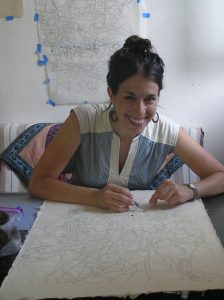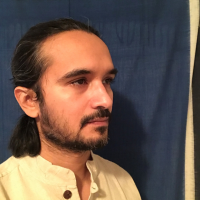CAA News Today
Take the CAA Professional Development Survey
posted by CAA — June 06, 2018
Professional Development is very important to CAA. We strive to create programs both during the Annual Conference and at other times that address the professional needs of the visual arts field and community.
We ask that you give us your feedback on what kinds of professional development programs would work best for you.
Deadline: July 1, 2018
Meet the 2018 Student Scholarship Winners
posted by CAA — January 30, 2018
with support from

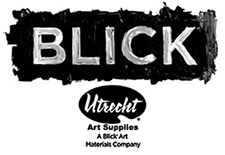
For the second year in a row, CAA is proud to partner with our sponsors, multinational publisher, Routledge, Taylor & Francis, and art materials specialist, Blick Art Materials, on student scholarships to assist CAA student members with conference costs.
Routledge, Taylor & Francis Student Scholarship
CAA’s Annual Conference Partner Sponsor, Routledge, Taylor & Francis supports four CAA student members with complimentary registration and an additional $250 in scholarship money to help with conference expenses such as travel, housing, or meals. The 2018 winners are:
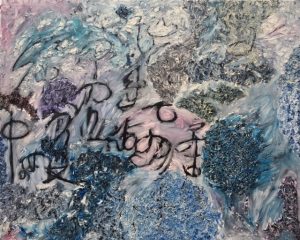
Painting by 2018 Scholarship Winner Patricia Chow, Outremer (detail), 2017
Patricia Chow
“Sustainability and Public Good,” MFA Exhibition at California State University, Los Angeles
Xinran Guo
Session: The Poetics and Politics of “Anonymous” Craft, February 21, 4:00 – 5:30 PM
Kira Jones
Session: He, She, and the In-Between: Reassessing Gender and Sexuality in Ancient Mediterranean Art, February 21, 8:30 – 10:00 AM
Chris Rioux
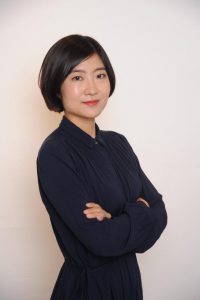
2018 Scholarship Winner Xinran Guo
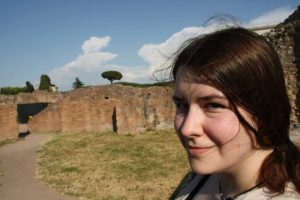
2018 Scholarship Winner Kira Jones
Blick Art Materials Student Scholarship
CAA’s Annual Conference Presenter Sponsor, Blick Art Materials supports conference registration fees for four CAA student members. The 2018 winners are:
Merih Cantarella
Session: The Elements and Elementality in Art of the Premodern World, February 21, 10:30 AM – 12:00 PM
Indie Choudhury
Session: New Directions in Black-British Art History, February 24, 4:00 – 5:00 PM
Alyssa Fridgen
Member of CAA Committee on Women in the Arts
Meeting: February 21, 10:00 AM -12:00 PM
Yi Yi Mon Kyo
Session: Making Things Modular, February 24, 8:30 – 10:00 AM
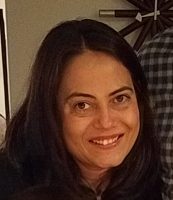 2018 Scholarship Winner Merih Cantarella |
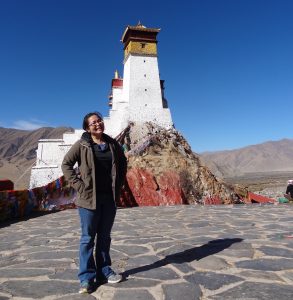 2018 Scholarship Winner Yi Yi Mon Kyo |
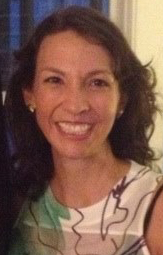 2018 Scholarship Winner Alyssa Fridgen |
See Us Pick the Winners at the CAA Offices
Criteria for the Scholarship
Awardees were chosen at random and fulfilled the following criteria:
- Individuals were registered for the Annual Conference by the Early Registration deadline
- Individuals are current CAA members with proof of student status
- Individuals did not receive conference registration or travel reimbursement from their institution or employer
We look forward to seeing you in Los Angeles! The 106th Annual Conference is February 21-14, 2018. Click here to explore the conference program.
Recipients of the 2017 Professional Development Fellowships
posted by CAA — January 29, 2018
CAA has awarded two 2017 Professional Development Fellowships—one in art history and one in visual art—to graduate students in MFA and PhD programs across the United States. In addition, CAA has named one honorable mention in art history and one in visual art. The fellows and honorable mentions both receive a complimentary one-year CAA membership and free registration for the 2018 Annual Conference in Los Angeles.
The recipient of the $10,000 fellowship in art history is Sooran Choi, a PhD candidate in Art History at CUNY Graduate Center. Accepting the $10,000 fellowship in visual art is Brenna K. Murphy, a MFA candidate in Studio Art at the University of Michigan Stamps School of Art & Design.
The honorable mention for art history goes to Murad Khan Mumtaz, a PhD candidate in the Department of Art and Architectural History at the University of Virginia. The recipient of an honorable mention in visual art is Courtney N. Ryan, a MFA candidate in Ceramics and Sculpture at Georgia Southern University.
Suzanne Preston Blier, president of the CAA Board of Directors, will formally recognize the two fellows and two honorable mentions at the 106th Annual Conference during Convocation, taking place on Wednesday, February 21, 2018, at the Los Angeles Convention Center.
CAA’s fellowship program supports promising artists and art historians who are enrolled in MFA and PhD programs nationwide. Awards are intended to help them with various aspects of their work, whether for job-search expenses or purchasing materials for the studio. CAA believes a grant of this kind, without contingencies, can best facilitate the transition between graduate studies and professional careers. The program is open to all eligible graduate students in the visual arts and art history. Applications for the 2019 fellowship cycle will open in the late spring.
FELLOW IN ART HISTORY
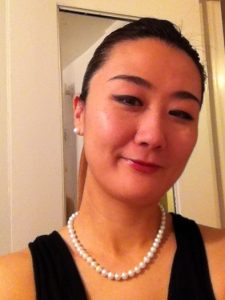 Sooran Choi
Sooran Choi
Sooran Choi will complete her PhD in Art History at The Graduate Center, City University of New York, in summer 2018. Her dissertation The South Korean “Avant-Garde,” 1967-1992: Subterfuge as Radical Agency concerns the South Korean avant-garde under Cold War military dictatorships from 1967 to 1992, and focuses on the social and political tension between the military dictatorships and the opposition of political dissidents comprised mostly of artists, students, and intellectuals, who defined themselves as “avant-garde artists.” By examining various forms of performative and conceptual art along with the recontextualized rhetoric of the avant-garde in South Korea, Choi argues South Korean artists appropriated and repurposed various Euro-American post-WWII avant-garde practices such as Fluxus, Happenings, Conceptualism, and Environmental art to mask their social and political critique to evade censorship and torture by the military juntas. A re-purposed avant-garde as covert political agency, Choi contends, proved useful for the South Korean artists to further their own social and political ends, and requires a renewed and nuanced interpretation of non-Western art historical trajectories beyond the binary of center/periphery model, and expands the existing discourse on the avant-garde.
Choi has received a Center for Place, Culture and Politics Dissertation Fellowship, and research grants from The Academy of Korean Studies, and the City University of New York. Choi’s scholarly interest in diverse art historical trajectories has carried over into her teaching as an Adjunct Lecturer at the City University of New York and the Fashion Institute of Technology (SUNY) where she teaches art history. Her past writing included topics such as East Asian artists in diaspora, alternative art spaces in South Korea, Gwangju Biennials, the Korean War Memorial in Battery Park (NYC), Japanese students at the Bauhaus, and the eroticism of Japanese Shunga art.
FELLOW IN VISUAL ART
Brenna K. Murphy
Brenna K. Murphy explores the experience of loss and its relationship to the body using fiber-based techniques such as weaving, embroidery, and lace-making. She holds a B.F.A. from the University of North Carolina – Chapel Hill where she graduated with Highest Honors and was the recipient of the Alexander Julian Prize, an award for the Department of Art’s “best students making work with a high standard of design,” and is currently pursuing an M.F.A. from the University of Michigan Stamps School of Art & Design.
A working artist for many years, Brenna has exhibited widely throughout the U.S. and internationally in China, Nepal, and France in community art centers, commercial galleries, and corporate venues. Her work has also been featured in exhibitions at museums and universities such as the Hunter Museum of American Art in Tennessee, the Patan Museum in Kathmandu, the University of Pennsylvania, Moore College of Art & Design, and the Tyler School of Art at Temple University. She has taught courses, led workshops, and given lectures at venues such as the Kathmandu University Center for Art & Design, the Nepal Art Council, and the Tyler School of Art, and her work has been collected by the Henry-Copeland Permanent Art Collection at the University of North Carolina and the prestigious West Collection. She is the recipient of many awards, including a competitive two-year fellowship from the Center for Emerging Visual Artists and the Fleisher Art Memorial Wind Challenge Award in Philadelphia, and has attended several artist residencies, such as the Santa Fe Arts Institute in New Mexico, the Kathmandu Contemporary Arts Centre in Nepal, and the CAMAC Centre d’Art and Cité Internationale des Arts in France.
HONORABLE MENTIONS IN ART HISTORY AND VISUAL ART
Murad Khan Mumtaz
Murad Khan Mumtaz is a Pakistani-American scholar who examines historical intersections of art, literature and religious expression in South Asia. His primary research focuses on devotional portraiture with a special interest in representations of Muslim saints in early modern India. He is also an artist trained in the traditional practices of North Indian painting, which he exhibits, researches and teaches internationally.
A native of Lahore, Mumtaz was educated at Pakistan’s National College of Arts, where he first studied Indian painting under the guidance of Ustad Bashir Ahmed. He later completed an MFA in visual art as a Fulbright Scholar at Columbia University. He is currently a doctoral candidate in the Department of Art and Architectural History at the University of Virginia and is working toward the completion of his dissertation, “Objects of Devotion: Representations of Muslim Saints in Early Modern South Asian Painting,” which he expects to defend in April 2018.
Mumtaz has been awarded fellowships from the American Institute of Indian Studies, the American Institute of Pakistan Studies and the CLIR-Mellon Program for dissertation research in original sources. As a Theodore Rousseau Fellow of the Metropolitan Museum of Art he has carried out research in European museums and libraries. He was recently appointed an art history research fellow of the Freer-Sackler Galleries at the Smithsonian Institution in Washington, DC.
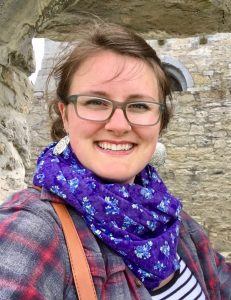 Courtney N. Ryan
Courtney N. Ryan
Receiving her Master of Fine Arts in Ceramics and Sculpture this May, Courtney Ryan is known for her intricate clay sculptures that appear to have emerged organically from their surroundings. She currently resides in Statesboro, Georgia, near Savannah, where she teaches Two-Dimensional and Three-Dimensional design courses as an Instructor of Record at Georgia Southern University. Upon graduation, Courtney intends to continue her studio practice while exhibiting work as she searches for her future career. As an aspiring professor of art, she wants to continue teaching and remain involved within the art world both professionally and academically.
Over the course of her graduate career, Courtney has had the opportunity to travel abroad to experience the Venice Biennale, as well as spend two summers in Ireland on residency through the European Council. As an avid presenter, Courtney has participated in conferences such as SECAC, SLSA, and of course CAA. Last August, she had her first solo exhibition, Domestic Consumption, at Columbus State University, and has since shown her work at other universities including the University of Georgia, Georgia State University, and Augusta University. Featured in Sculpture Magazine as an Honorable Mention for the 2017 Outstanding Student Achievement Award, Courtney continues to push her work into new realms. Currently she is exhibiting in The Delaware Contemporary Museum’s 2017 MFA Biennale: Domestic, as well as an upcoming show-swap with Aalto University in Helsinki, Finland. Having just completed a 40-foot mural and a public arts sculpture, Courtney is also heavily involved in her local community.
Refining Hiring Standards for Part-Time Faculty
posted by CAA — November 02, 2017
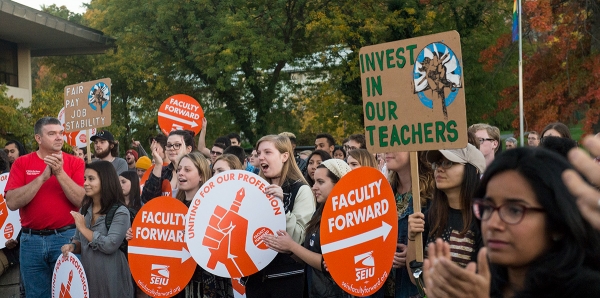
Students and faculty protest at Ithaca College, 2016. Image courtesy Tompkins County Workers’ Center.
CAA is committed to supporting all professionals in the field. This especially pertains to those who are applying for and working as part-time faculty members. For more than twenty years, CAA has been setting standards for hiring part-time faculty.
CAA’s current guidelines are published here and copied below. We want to hear from members about how these might be updated and strengthened.
Hunter O’Hanian
College Art Association
Executive Director and Chief Executive Officer
CAA Guidelines for Part-Time Professional Employment
Part-time employees play a critical role within the art world, specifically in academia, museums, galleries, and other arts institutions. They help meet curricular demands, offer expertise in specialized areas, and/or provide leadership in institutional programming.
Part-time faculty may be referred to with the following terms: adjunct, temporary, lecturer, graduate assistant, and teaching assistant. The terminology and its implications may vary from institution to institution, with the designation “part-time” or “temporary” serving as the most general and therefore consistent names. While this standard is primarily concerned with addressing the conditions of fully credentialed and professionalized part-time or short-term employees who are not simultaneously graduate students, this guideline may be relevant to those employed in conjunction with their graduate studies.
Part-time/temporary faculty and other part-time/temporary employees may be understood to be of several types: Part-time/temporary employees who would prefer full-time positions, part-time/temporary employees with no other employment, part-time employees who teach/work in addition to other full-time employment, and part-time/temporary employees who are retirees. Additionally, some institutions have paid, professional visitors that are not ongoing, full-time employees and also are not recurring, part-time employees. With this in mind, it is acknowledged that there is no singular reason one seeks part-time employment, and while each person may have individual reasons and needs, CAA encourages institutions to chart a path of continual improvements and aspire to provide the best possible working conditions for all part-time/temporary professionals, especially given the increasing reliance on such professionals.
Among key areas of concern are: equitable compensation; employment stability; access to employee benefits, including health care; access to professional development; and safe and adequate working conditions.
Within academia, these areas of concern may be assessed and addressed by comparing part-time faculty roles against full-time tenured/tenure-track faculty roles. Where similar work is performed and similar institutional expectations are held, equitable compensation and resources should exist. Where the treatment of employees in full- and part-time categories is dissimilar, the differences in expectations/compensation and the reasons for those differences should be articulated to both groups.
Institutions that regularly have visiting or guest faculty or curators should define how such roles are similar and different from other full-time and part-time employee roles. If the visiting appointment has responsibilities most similar to a comparable full-time position, the compensation should resemble such a full-time position.
Certain rights and responsibilities should be consistent regardless of one’s employment category. For example, academic freedom should provide the same protections for all. So too should workers’ compensation and other applicable laws that offer employee safeguards.
Working Conditions for Part-Time Employees
Given the great range of mission and expectations in institutions, it is essential that institutions define the roles of part-time employees and provide them with this information as well as information on their workplaces.
- The following written information should be provided by the institution at the time of employment.
- Institutions with a significant number of part-time employees may wish to create and use a part-time employee handbook.
- Statement on the institutional/departmental mission or philosophy
- A full description of the part-time position, including a definition of the role and duties (in the case of faculty, this would include class title, description, size, contact hours, advising responsibilities, and any other responsibilities)
- Description of teaching facilities, office facilities, and support services
- In the case of art and design faculty, description of and access to studio facilities or teaching and for personal, professional development
- Description of financial support and resources available for performing the work and for personal, professional development
- Information on evaluation and promotion procedures
- Information on employment security
- Information on institutional governance and opportunities to participate in it
- Information on any and all institutional expectations
- A written contract for part-time employment should explicitly state the following:
- Compensation including salary, benefits, and any other compensation
- Duties and responsibilities
- Duration of employment
- Process and timing of evaluation
- Availability and timing of contract renewal
- For part-time/temporary faculty:The standards of excellence defined by visual arts programs should be founded upon realistic criteria
- Generally, part-time/temporary faculty do not have research/creative activity duties; if such expectations exist they should be stated in the contract and the faculty member compensated for them
- Part-time/temporary faculty may or may not have service obligations; if service duties are assigned, the faculty member should be compensated for them
- Institutional expectations should take into consideration changes in academia, the commercial
marketplace, and the discipline in question - Whenever possible, faculty should be included in the design of the course taught
- If a course is to be canceled due to under-enrollment or another issue, the faculty member should be notified in a timely manner; if it is canceled at the last minute, the faculty member should be compensated, either in full or on a pro-rated basis for course preparation
- Part-time faculty should have access to private (or shared with the expectation
of privacy when needed) office space for student/teacher meetings - If a part-time faculty member’s institutional contribution is equivalent to that of a full-time faculty member, the part-time faculty member should be equitably compensated in comparison to such a full-time faculty member. If there is no expectation for research or service, differential compensation may be significant. This should be clearly stated in contractual materials.
- For all part-time employees:
- Personal and environmental safety should be a major concern with adequate protection provided by the employer
- OSHA, EPA, and other relevant standards should be followed
- Institutional practices for ensuring safety should be clearly communicated
- Opportunities for advancement in rank, salary, and responsibilities should be given to recurring, part-time employees.
- Adequate administrative support should be provided: mailbox; office space; telephone and computer access; clerical support; library facilities; and teaching/research support such as assistants and/or graders, when warranted
- When additional duties are offered or assigned, and such duties are ones often performed by full-time employees and go beyond the regular scope of part-time employment, the part-time employee should be offered additional and adequate compensation, such as a stipend
The 2013 ad-hoc committee for revision was co-chaired by Thomas Berding, Michigan State University and John Richardson, Wayne State University. The committee included Janet Casey, Skidmore College; Zoe Darling, Milwaukee Institute of Art and Design; Jim Hopfensperger, Western Michigan University; David LaPalombara, Ohio University; Dennis Nawrocki, Wayne State University; and Kate Wagle, University of Oregon.
Lynda.com Membership for $99 (70% off)
posted by CAA — October 10, 2017
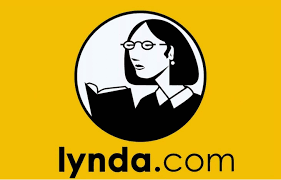 We recently announced new membership levels and new benefits for our CAA members, and we wanted to pull out one new benefit for highlighting because we think it’s really helpful, and kind of a big deal.
We recently announced new membership levels and new benefits for our CAA members, and we wanted to pull out one new benefit for highlighting because we think it’s really helpful, and kind of a big deal.
All CAA members can now get a one-year membership to Lynda.com for $99 (standard price $360). To purchase Lynda.com, log into your CAA account.
Lynda.com is the largest online learning platform, with over 6,000 courses ranging from Teacher Tools to Educational Technology to Content Marketing and Computer Programming.
Lynda.com purchases are nonrefundable and limited to one per CAA member. Please allow up to two business days to receive confirmation email from Lynda.com for access.
CAA 2018 Professional Development Workshop Proposal
posted by CAA — June 13, 2017
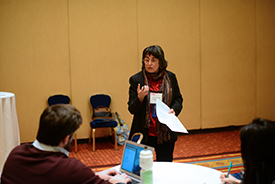 Ends on July 9, 2017
Ends on July 9, 2017
CAA seeks Professional Development Workshop leaders for the 2018 Annual Conference taking place at the Los Angeles Convention Center from February 21–24. The Association seeks active members who are well-established in their respective fields to serve as leaders for ninety-minute Professional Development Workshop offerings at the conference. The Annual Conference Committee and Programs Department have provided sample titles and/or subjects below, but welcome innovative topics and formats.
Requirements:
- Completed Submission form (see below) with related attachments and a succinct description of workshop
- Detailed syllabus for the workshop that outlines both activities and a proposed timeline for the ninety minutes (the selection committee encourages workshops that have active components such as guided discussions, writing exercises, and hands-on activities; the committee discourages lecture formats)
- List of required materials workshop participants should bring (laptops, resumes, etc.)
- An active CAA Membership ID number (All workshop leader(s) must be current individual CAA members through February 24, 2018.)
Compensation:
- Complimentary Full-Conference Registration
- 1 year of Premium Level Membership (renewal or upgrade to commence upon current membership’s expiration date)
Please visit CAA’s page on the Submittable website for more information and to apply. Questions regarding submission? Contact Katie Apsey at kapsey@collegeart.org or 212-392-4405.
List of Sample Topics, Subjects, or Titles:
Activating Audiences and Cultivating Engagement
Assessing and Comparing Citation Management Systems: Scrivner, Refworks, Retero
Basic Finance for Artists and Academics
Business Strategies and Negotiation for the Arts
Creating an Online Presence: Using Social Media Professionally
Creating Online Exhibitions
Finding Grants and Fellowships
Freelance Lecturing: A Guide
Fundraising Fundamentals for Academics
Get Out of the Office/Studio!: A Public Speaking Workshop
Getting a Job in the Arts in the Current Economic Climate
Getting into the Digital Humanities…
Interdisciplinary Practice: Successful Collaboration across Disciplines
International Post-Doctoral/Post-MFA Funding Opportunities
Legal Issue Primer for Artists and Art Historians
Marketing 101 for the Arts
Post-Doc Position: Right or Wrong Choice for You?
Record Keeping and Archiving: Importance and Efficiency
Researcher and Artist: How They Can Collaborate
Strategies for Teaching Assistants
Syllabus Development
Technologies for Teaching: Canvas, Piazza, M+Box, Google Suite
The Great Divide(s): Bridging the Museum, Gallery, and Academic Worlds
Thinking Outside or Beyond the Tenure Track
Working with Images: Copyright and Digitization




